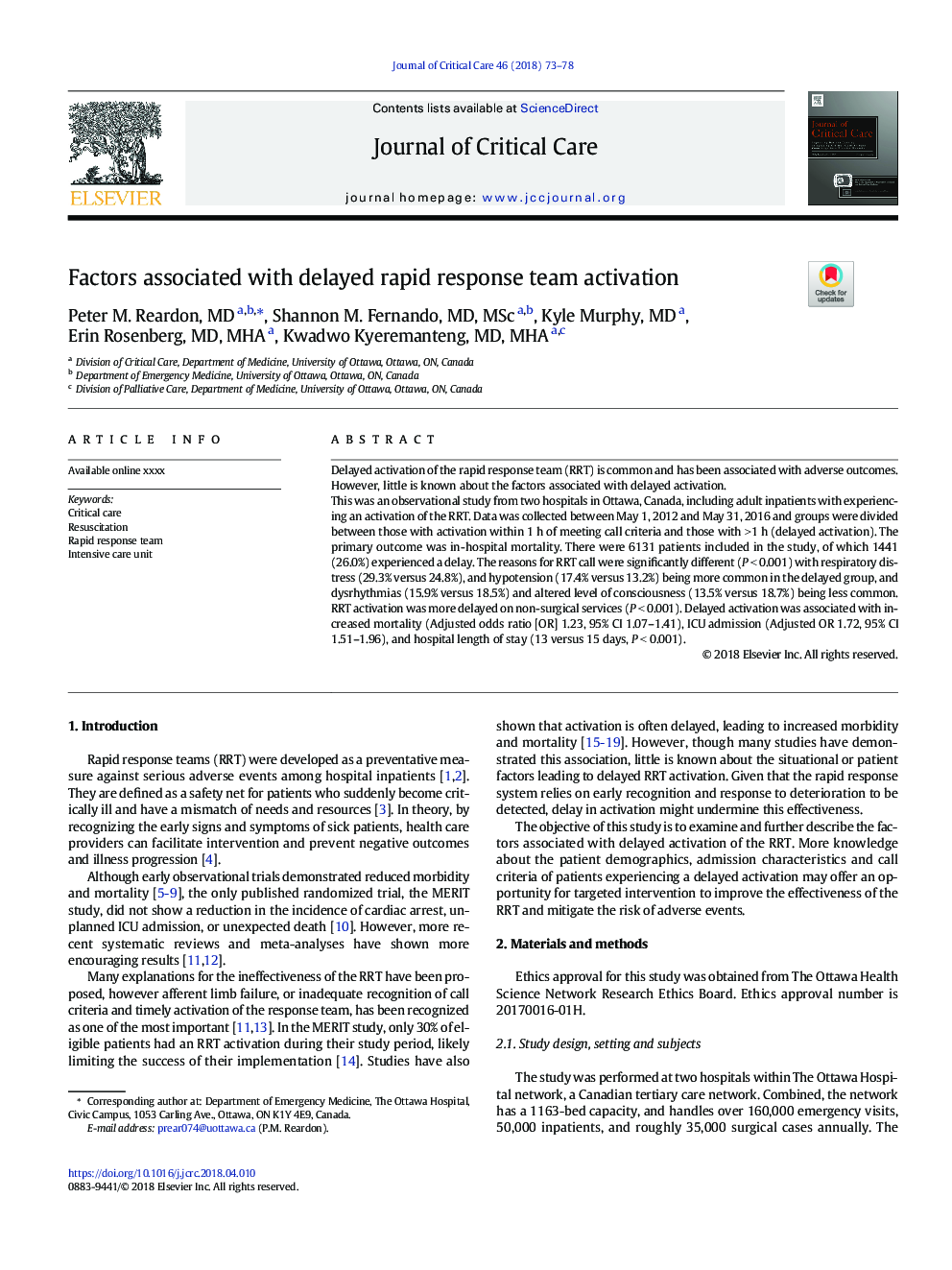| Article ID | Journal | Published Year | Pages | File Type |
|---|---|---|---|---|
| 8620172 | Journal of Critical Care | 2018 | 6 Pages |
Abstract
This was an observational study from two hospitals in Ottawa, Canada, including adult inpatients with experiencing an activation of the RRT. Data was collected between May 1, 2012 and May 31, 2016 and groups were divided between those with activation within 1â¯h of meeting call criteria and those with >1â¯h (delayed activation). The primary outcome was in-hospital mortality. There were 6131 patients included in the study, of which 1441 (26.0%) experienced a delay. The reasons for RRT call were significantly different (Pâ¯<â¯0.001) with respiratory distress (29.3% versus 24.8%), and hypotension (17.4% versus 13.2%) being more common in the delayed group, and dysrhythmias (15.9% versus 18.5%) and altered level of consciousness (13.5% versus 18.7%) being less common. RRT activation was more delayed on non-surgical services (Pâ¯<â¯0.001). Delayed activation was associated with increased mortality (Adjusted odds ratio [OR] 1.23, 95% CI 1.07-1.41), ICU admission (Adjusted OR 1.72, 95% CI 1.51-1.96), and hospital length of stay (13 versus 15â¯days, Pâ¯<â¯0.001).
Related Topics
Health Sciences
Medicine and Dentistry
Anesthesiology and Pain Medicine
Authors
Peter M. MD, Shannon M. MD, MSc, Kyle MD, Erin MD, MHA, Kwadwo MD, MHA,
